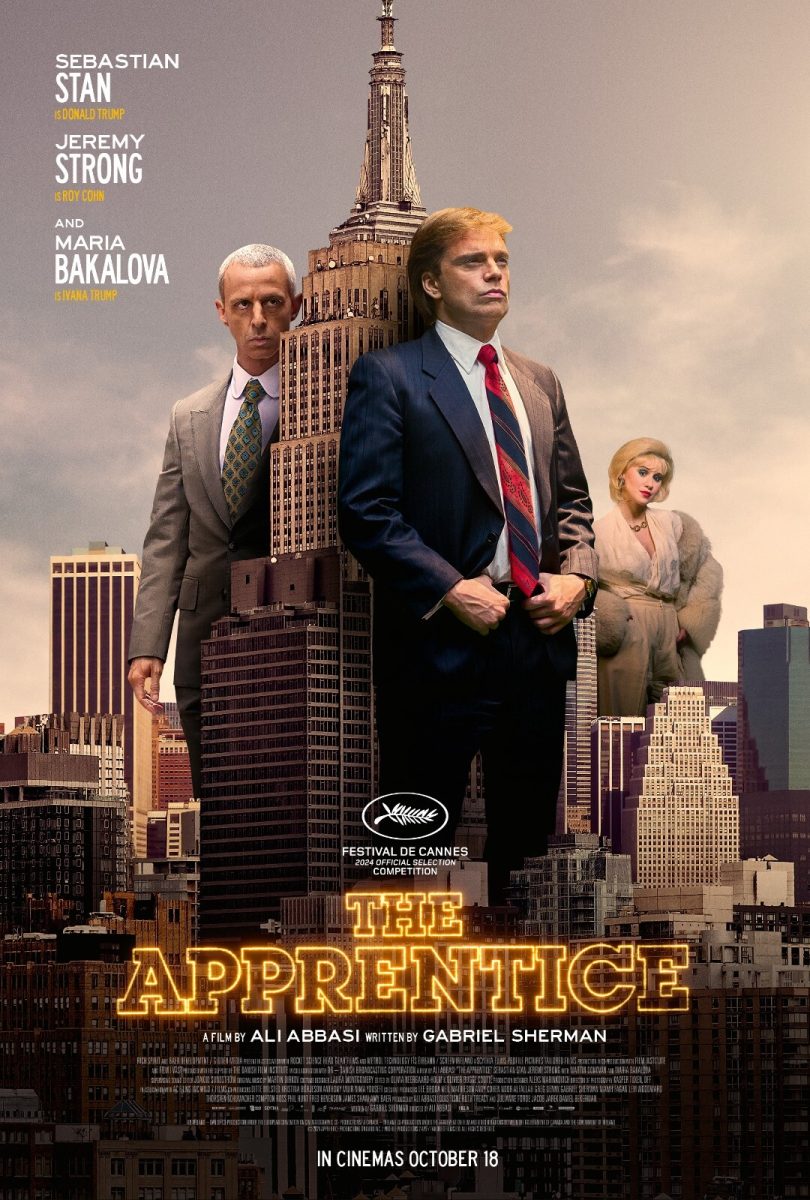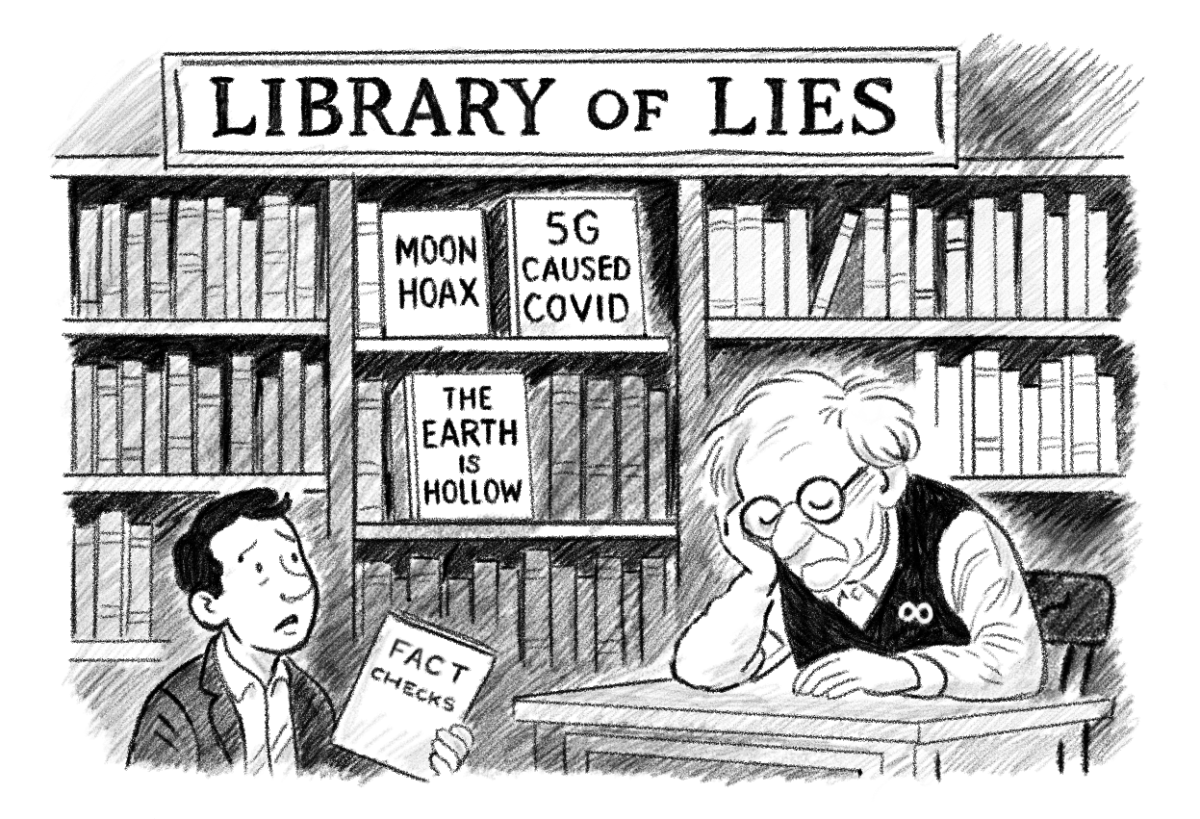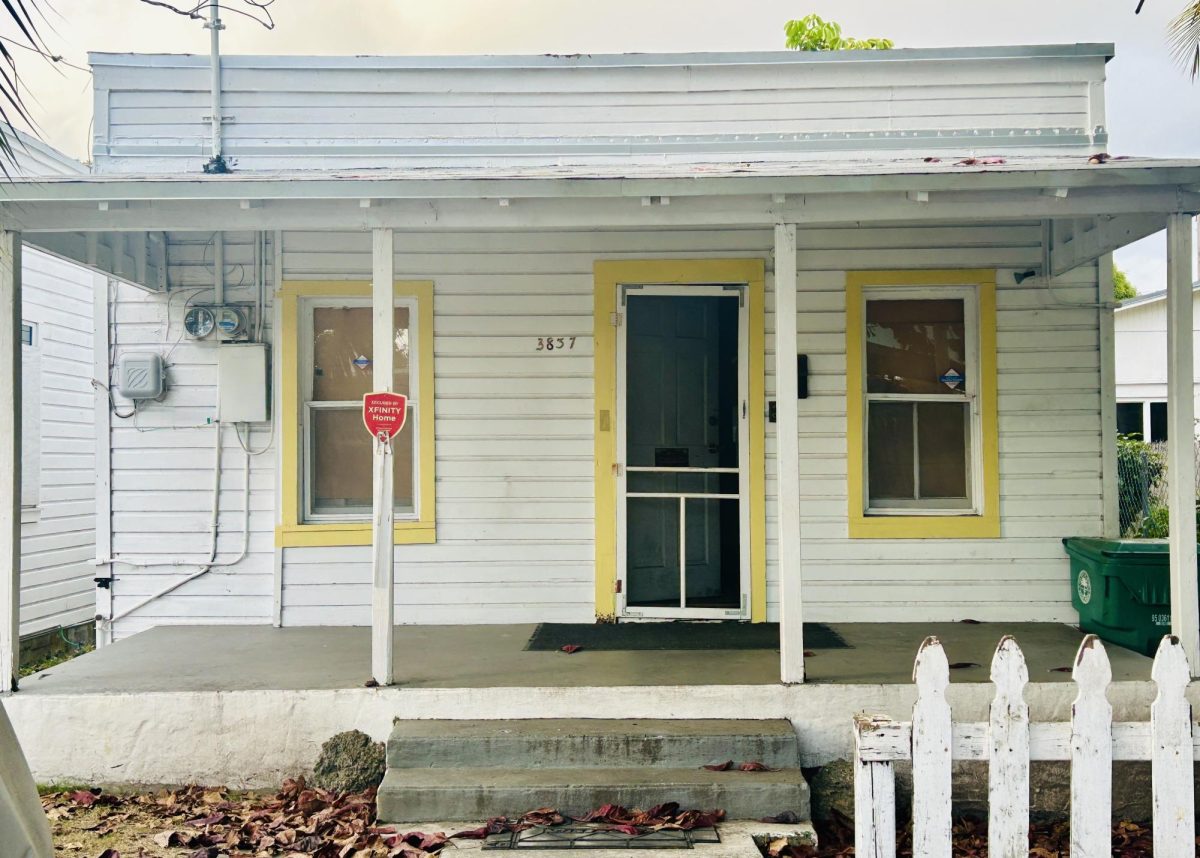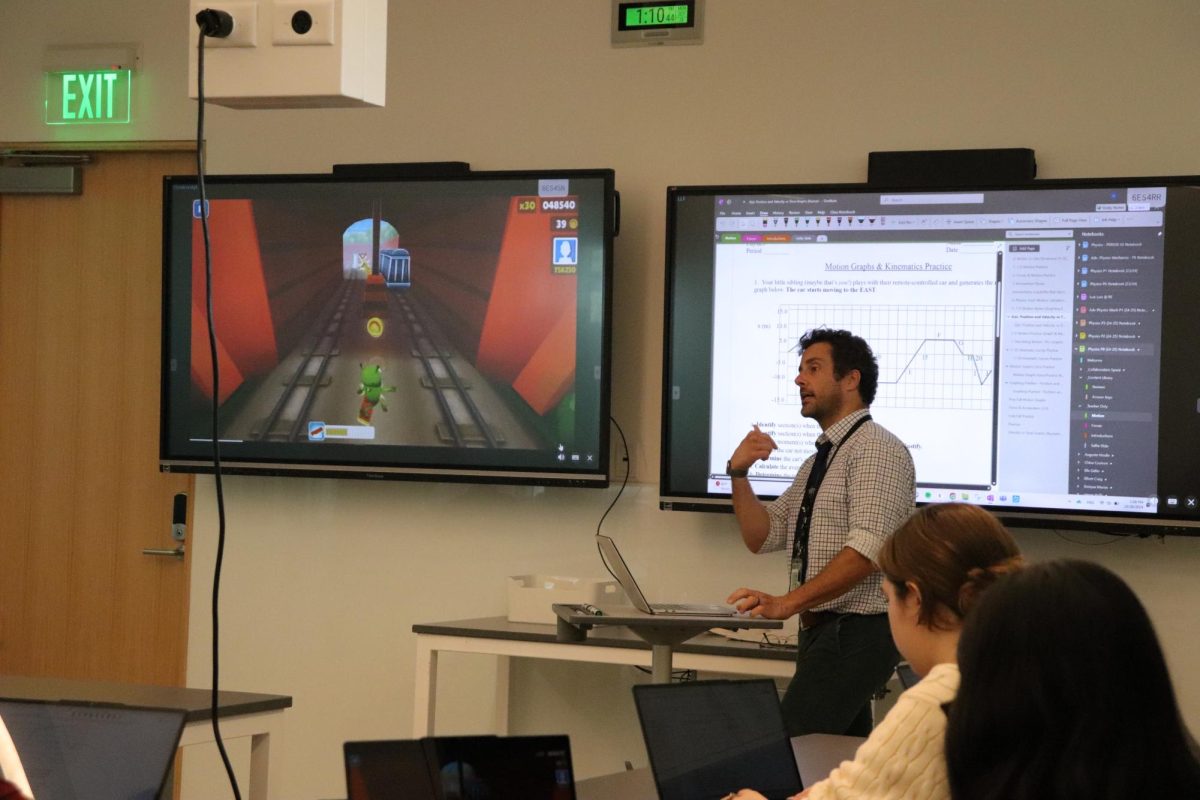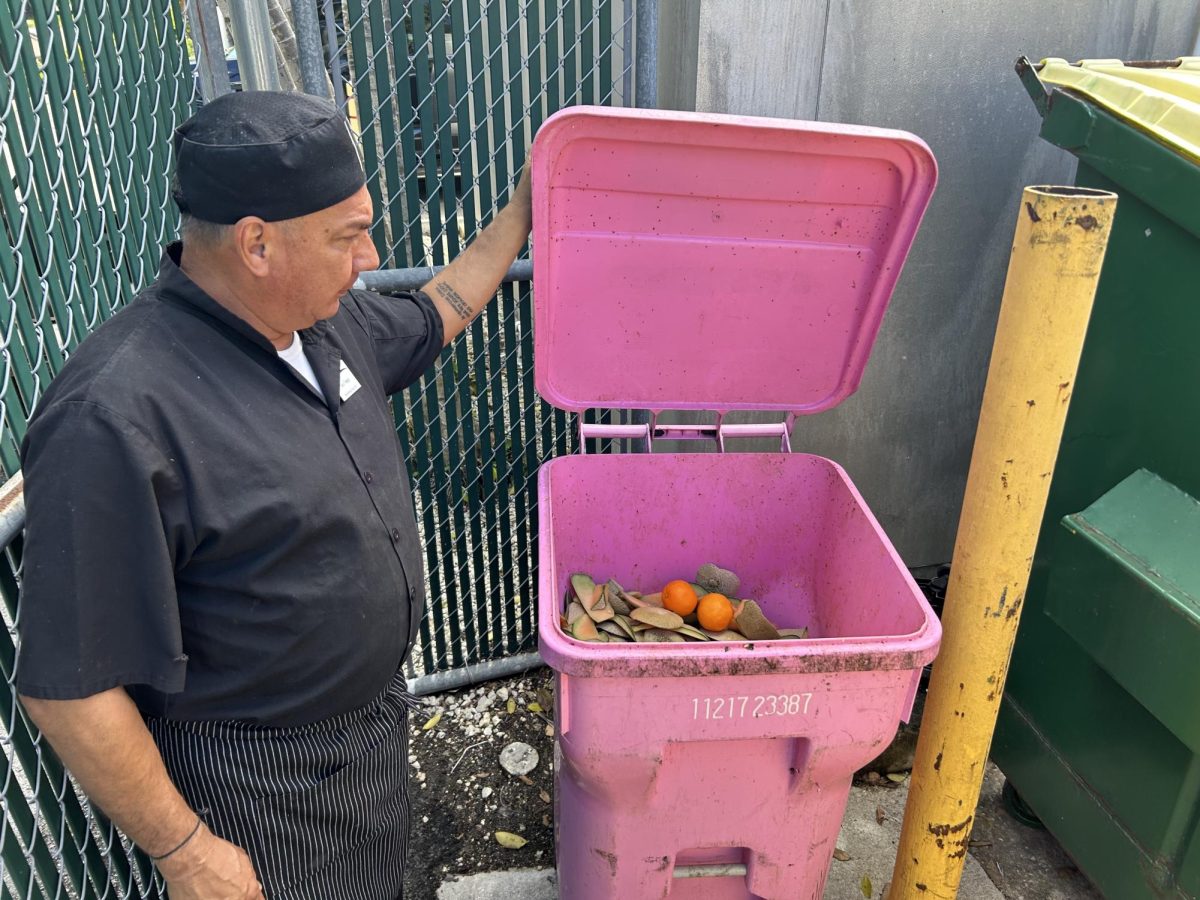As the proverb goes, “it takes a village to raise a child.”
But as a first generation Algerian-American with no organized ‘village’ that shared my culture around me, I’ve always grappled with that idea. Growing up in Miami, I certainly never felt like an outsider. My community was a melting pot of languages, cultures and ethnicities, all coming together despite our different backgrounds. However, I couldn’t help but envy how my Latin American friends didn’t have to explain their culture to other people. I envied how they didn’t have to spend hours cooking to get a taste of home, but could just go to a local restaurant. They didn’t get asked what language they were speaking to their parents, or watch as people struggled to place their country of origin on a map. They had a community of people eager to pass down culture and traditions, people to understand and celebrate and connect with. I was fortunate enough to have parents who cared deeply about preserving our traditions and language, even creating some of our own along the way. Still, I couldn’t help but wonder what it would be like to grow up with a group of people who shared my culture within reach.
My story is hardly unique, however. Ransom Everglades is home to so many first-generation, ‘villageless’ families. And while our traditions may be different, one common thread ties us all together: we’ve all had to learn, in one way or another, to preserve our cultures without a community.
The question is, how?
First, it’s important to understand why not having a community is so difficult. “Not having an immediate community kind of leads to me having to ‘dumb-down’ my culture. Not even just for other people, but also for myself,” said Sofia Rakhimi ’25. Sofia, who grew up in Russia to Tatar-Uzbek parents, explained that she often has to generalize her culture to find commonality with others.
While she finds shared heritage with others from ex-Soviet Union countries through language, she still struggles to make some connections. “If I want to experience a certain tradition, I have to remove how I practice it and kind of dilute my culture to try to fit in or find common groups with other people. On the one hand, it helps me learn a lot about others and their cultures and helps me connect better, but I don’t really have that structure for my own.”
Jordan James ’25, who is half Vietnamese, described a similar phenomenon when it comes to how she views her own identity. “It feels like a language barrier,” she said. “This idea of wholeness that people have in regard to identity—I haven’t really experienced that. I kind of just am.”
“Finding a community is really tough in Miami,” added Leyla Amjad ’26, who is half Pakistani and half Vietnamese. “Being Muslim, it’s just really hard to find people that relate to you when they don’t share experiences, holidays, things like that.”
For many, the issue boils down to a distance that makes it difficult to learn about your culture, especially intricacies like regional dialects or celebrations. “Sometimes it’s pretty difficult because you want to connect with your community but don’t have easy access. It’s usually within your family or a few friends that you can actually share your ideas about your culture, which is kind of sad,” shared Hudson Kaplan ’25, who is Japanese-American. “Compared to someone who grows up Hispanic, you have this whole community—basically the whole city is your community. You have a lot of Hispanic restaurants, almost everyone speaks Spanish, you kind of feel like you’re in a second home rather than feeling like you are isolated,” he said.
At the same time, ‘village-less’ families still find ways to spread their cultures and celebrate them with pride.
Upper School Science Department Coordinator Mr. Jay Salon, for example, whose parents are both from the Philippines, has gained a reputation for his ‘first day of school’ questions. Every year, without fail, Mr. Salon goes around the room and has each student introduce themselves and talk about their cultures and origins. He also asks his new students to guess where he is from—which, as he explained to me, “almost never” happens on the first try.
He explains that his own background as a first-gen Filipino-American is “why I’m so aware of people who aren’t American. I always ask people, ‘What’s your last name? Where are you from?’ It’s so interesting to me because it’s relatable,” he said.
Mr. Salon explained that he struggled with appreciating and loving his culture growing up. “When you’re young, it’s difficult. But now you’re proud of who you are, you’re proud of your culture. I think it’s a process that every first-generation American goes through,” he said.
What may seem like a classroom icebreaker is much more; it’s Mr. Salon’s way of encouraging people to share their cultures with their classmates, which they might not have done otherwise. He understands that it is often easy to get lost in the melting-pot and not feel a need to tell your story. But understanding someone’s cultural background is important in truly understanding their perspective.
This idea of spreading culture is also an opportunity to reclaim the narrative within your community. Kaplan said that he started the Japanese Culture Club at RE this year because, “right now, a lot of people are interested in Japan because of anime, but they don’t really know too much outside of that. The purpose of the club is to expose people to other parts and features of Japan they wouldn’t get from that.”
At the same time, however, the complexity of our relationships with our cultures as first-gens makes them intrinsically very personal. “I don’t think I actively try and spread my culture. Culture is not something that people really hold to a high regard; it’s much more personalized here. You’re either part of the big group or the small group,” said Anu Tewari ’25.
Tewari, who is half Dutch and half Nepalese, and has lived everywhere from Singapore to Connecticut, explained that the more important part of culture is not how it is expressed to others, but rather the practices that are part of your daily life. “I think, for me, the ability to even celebrate these things here and the ability to express my culture and language and traditions is a freedom within itself, and it’s something that would be looked down upon in a lot of places,” she said.
It is this duality that sets those who don’t have a community apart: the constant challenge of learning to manage external and at-home cultural lives.
This looks different for every family. Traditionally, one of the most significant ways to maintain culture at home is through language, a luxury not always awarded to first-gen kids.
As Mr. Salon put it, “It’s the same old story of all immigrants. They want their kids to speak English,” he said. “They [his parents] never spoke to me in Tagalog, but I wish I did [speak the language]. When you go to the Philippines, they already know when you open your mouth that you’re American.”
James has experienced a similar struggle, especially when she wants to visit her family in Vietnam. “I think it was a huge disservice done to me to not have passed that down. Being able to speak the language of your culture is one of the major ways you can keep it alive. By not being taught that, I have a huge disconnect when I want to go back and visit Vietnam or speak to my grandma. There is a huge understanding divide,” she explained. “At the same time I completely understand why it couldn’t be passed down as easily to me because my mother didn’t really have the bigger community to teach me the language.”
For James, food acts a universal language, bridging the gap that words can’t. “That’s why my goal is to learn how to cook from my mom and grandma, because I think you can pass down a lot of your culture through food,” she said. “After language and traditions, it is definitely the next runner up. The recipes, techniques, and special seasonings you use are passed down through your family and can be taught to generations to come.”
Mr. Salon described a similar experience, though his requires an airplane ticket.
“I used to go all the way to Las Vegas every time I had a chance. Why? I go for the food. They have this street that’s all Filipino restaurants, and I just die!” he explained.
For others, religious practices take on the role of language as a connecting force. Tewari finds that celebrating Hindu holidays is the most impactful way for her to connect with her family in Nepal. “With Nepalese it’s strange, because I’m already an outcast, and the fact that I can’t speak the language means I can’t really communicate with my family. And here it feels like I’m not really able to prove myself as a real Nepalese person because I can’t speak the language. So my cultural preservation has to come more specifically from religion.”
For Amjad, practicing her religion has been especially difficult considering the rise of stereotypes and Islamophobia. “I feel like it’s not really spoken about… if you say, ‘I’m Muslim,’ people aren’t necessarily scared, but they’re more cautious around you. It’s a really big stigma, and people need to be more educated about it.”
Rakhimi finds herself in a more unique situation when it comes to religion, due to the religious censorship that occurred within the Soviet Union. “I try my best to uphold and learn about the Muslim traditions in my family because my parents don’t practice, and my grandparents barely practice. It’s hard to keep it up, because in the Soviet Union religion was completely banned, so the only remnants of Islam in my family are embedded into family practices that we couldn’t do in public but did in the secrecy of our homes,” she explained. “I try to educate myself on the religion and encourage my family members to immerse themselves and think about the significance of celebrations.”
This represents another role that first-gens often take on: consolidators. We attempt to tie together all the loose ends from the web that is our culture, stringing together what we can in fear of losing the full picture.
But as Tewari explained, this goal is nearly impossible. “I know that I’m definitely losing parts of myself that I would have been able to connect with had I lived somewhere else, so it’s a bittersweet thing. I get to gain another culture, but I’m also in the process of losing one,” she explained.
It’s very easy to dwell on the negatives and the isolation that come with maintaining your culture abroad. But it is also, in many ways, such a blessing to know that you are among the first, in whatever community it might be. So while we need to avoid generalizations, or feeling ‘responsible’ for representing a whole culture, there is also so much beauty in the ability to stand firmly within your identity, with or without external support.
“In a way, I’m glad I was brought up this way, because it has helped me appreciate my culture more,” said Mr. Salon.
We are each bearers of a distinct legacy, adding a new story to the narrative. And while we may feel a sense of pressure to be representatives of our cultures, we don’t have to be. As James pointed out, “My identity really hadn’t been a major concern of mine until middle school. I didn’t really care too deeply about it; it was kind of just there and existing. And I think in some ways that’s how it should be, and you need to know when to disconnect,” she said.
“It’s still a part of you, but you can’t let your identity be the only thing that you are. You are such a beautiful person with more aspects to you than this one checked box.”


![Leyla Amjad '26: "Being Muslim, it's just really hard to find people who relate to you when they don't share [your] experiences."](https://recatalyst.org/wp-content/uploads/2024/02/IMG_9831-1200x780.jpg)

